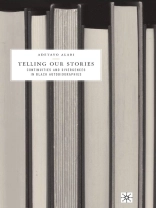Telling Our Stories investigates the continuities and divergences in selected Black autobiographies from Africa, the Caribbean, and the United States. The stories of slaves, creative writers, and political activists are discussed both as texts produced by individuals who are products of specific societies and as interconnected books. The book identifies influences of environmental and cultural differences on the texts while it adopts cross-cultural and postcolonial reading approaches to examine the continuities and divergences in them.
Table of Content
Introduction: The Autobiographical Genre in Black Societies Theorizing Race, Theorizing Blackness Postcolonial Theory and Black Literatures Caliban, Is That You?: Slave Narratives and the Politics of Resistance Different, Yet Related: Black Creative Autobiographers in Dialogue Communal Resistance and Subjectivity: Black Activists in Racialized Societies Conclusion: Writing Another Life: The Constructedness of Autobiographical Genre
About the author
ADETAYO ALABI taught Postcolonial and International Literatures at Millikin University in Illinois, USA and at the University of Windsor in Canada. He published entries in the
Encyclopedia of Postcolonial Literatures and in
The Companion to African Literatures. He has also published several chapters in books, including
Ogoni’s Agonies: Ken Saro-Wiwa and the Crisis in Nigeria,
The African Diaspora: African Origins and New World Identities, and
Marvels of the African World: African Cultural Patrimony, New World Connections, and Identities; and in journals like
Liwuram,
African Literature Today, and
In-Between.












